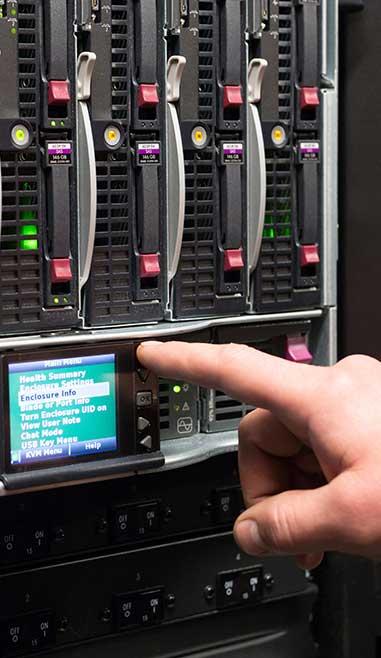RAID DATA RECOVERY
The implementation of a RAID system is usually done for data security, no single system is 100% secure. A RAID uses multiple drives to increase the storage capacity of systems and to have a redundant way of storing data. Data is stored in different places on multiple hard drives, giving it fault tolerance to survive single or multiple drive failures. People and businesses use this technology a lot because they believe it is the most secure way to store their critical files.
Unfortunately, RAID arrays are still susceptible to data loss. The method of distributing data between drives and the mechanical nature of disks make them vulnerable to failure. In some cases this redundancy in data storage works against you, as a failed drive can go unnoticed before the rest of the drives start failing.
FAILURES, SETTINGS AND RAID SYSTEMS
The main causes of RAID failures are component related (controller cards and hard drives) as well as operational and applicational corruption; but the most frequent problem is user error.
RAID configurations are complex (partitions, volume, interval between drives, etc.). Unfortunately, different manufacturers often use custom applications that can add even more complexity. This makes RAID data recovery the most complicated of all.
There are several RAID systems on the market, each with its advantages and disadvantages. The most popular configurations are RAID 0, 1, 5, 6, 10, and 0+1
Services:
Raid Data Recovery, NAS Data Recovery, VMware Data Recovery, SAN Data Recovery
THE RIGHT SERVICE TO RECOVER YOUR DATA
Due to its complexity, it is important to choose the right data recovery service for your system. Sima Data Recovery has extensive experience in raid array recovery, which considerably increases the chances of recovering your data as quickly as possible. Proprietary tools used by our data recovery lab can determine all RAID configurations, including parity block size, rotation, and operating system, without the need for a RAID controller.
Advantages of our recovery services include:
RAID specialists with 21 years of experience
Dedicated RAID Recovery Lab
Faster response times and 24/7 emergency services
When you experience a RAID failure, immediately power off the system and call a professional. There are several actions NOT to take when your device fails:
DO NOT try to reset the RAID
DO NOT re-insert and force online RAID members
DO NOT try to repair the file system by running chkdsk o fsck


